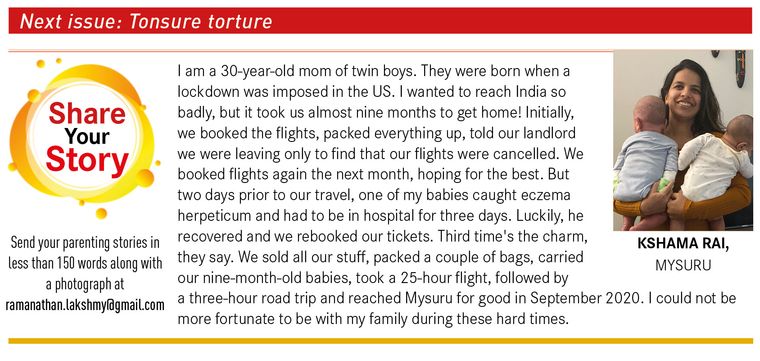My baby’s bath temperature used to be so high that the bath thermometer melted when I put it inside the bucket. I knew then that the water was too hot, but an army of more experienced women convinced me otherwise. What followed were traumatic bath sessions with my baby squealing and screaming her lungs out and me undergoing moments of sheer agony. It took me some courage and conviction to take charge of bathing the baby at a moderate temperature. The result? My baby started enjoying her bath! It was not that she had not liked bath time. Clearly, she was revolting against the temperature being used.
Unfortunately, it is a common practice in India, especially in the south, to bathe newborns in boiling hot water. It is believed that the scorching hot temperature will put the baby to sleep and relieve it of aches. In fact, boiling hot water will scald your baby’s tender skin.
Typically, mugs of hot water are splashed on to the baby’s head and body despite the baby registering its pain in wails and cries. Due to this, some babies go on to have seizures and slip into an unconscious state. This ‘passing out’, which lasts several minutes, is unfortunately viewed as a baby going into a deep sleep after a nice, hot bath. Several videos of such baths have been submitted by the medical community as proof of a baby having a seizure in the middle of a bath.
Such a form of reflex epilepsy is a condition where a seizure is provoked exclusively by an external stimulus. Reflex epilepsy accounts for six per cent of all epilepsies. Medical practitioners have coined the term ‘hot water epilepsy (HWE)’ to refer to this unusual form of epilepsy caused by the pouring of high temperature water (40-50 degree celsius) on to a baby’s head or body.
The incidence of HWE can be brought down by lowering the bath water temperature. HWE needs no other medical intervention. It has not been known to interfere with any development milestones. The seizures stop as soon as the temperature is reduced.
For typical Indian summers, stick to room temperature water. During winters or cold days and nights, use warm water (check with your little finger/elbow).


